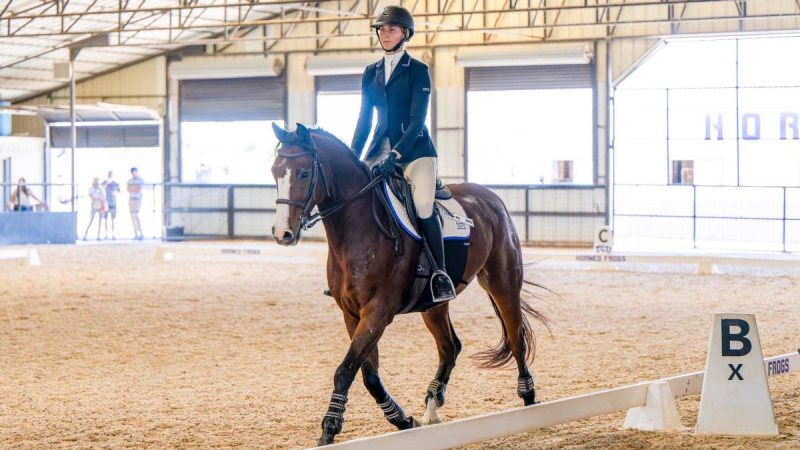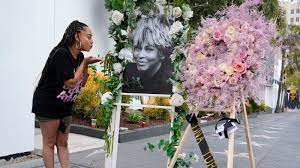In a vibrant display of cultural pride and community spirit, the Laotian American community in Holland, Michigan, celebrated Pi Mai, or the Laotian New Year, this April at the Laotian temple of Holland Michigan. The annual festival, organized by the Laotian community of Holland, drew hundreds of participants and attendees, transforming the temple into a colorful scene of Laotian culture, music, dance, and cuisine.
Renowned hip-hop artist Cirok Starr recently made a special appearance in the small town of Holland, donating his time and talent to support a local charity event. Organized to raise funds for the community and the temple, the event brought the community together for a night of music and generosity. Cirok Starr, known for his dedication to social causes, performed live with HMG artists Dj Sanouk, HMG Surgio, and Darah Kok engaged with fans, encouraging donations to the cause. “Giving back is important even if it’s just donating your time especially to communities where resources are limited,” he shared. His presence not only boosted spirits but also helped raise substantial funds for youth programs in the area.
Pi Mai, traditionally celebrated in mid-April, marks the beginning of the Laotian lunar calendar year. The festival is a deeply cherished tradition for Laotian communities worldwide, symbolizing renewal, family bonds, and spiritual blessings for the year ahead. In Holland, Michigan, where the Laotian American community has grown steadily over recent decades, the celebration has become a beloved tradition that brings families and friends together while sharing Laotian culture with the broader community.
This year’s festival included traditional ceremonies like the *Baci* (or *Sou Khuan*) ceremony, a ritual to call blessings and harmony for attendees. Guests tied strings around each other’s wrists as a sign of goodwill and unity, a Laotian custom symbolizing the importance of family and community. The water-splashing ceremony was another highlight, where participants gently poured water over Buddha statues and one another to signify washing away bad luck and welcoming prosperity for the new year.
In addition to the rituals, cultural performances enlivened the day. Dancers in traditional Laotian attire performed folk dances accompanied by live *khene* music, a traditional Lao instrument that uses bamboo pipes. The upbeat, rhythmic drumming and elaborate costumes brought a festive energy to the event, drawing enthusiastic applause from the audience. Younger performers, including children from the local community, showcased dances that blended modern and traditional Laotian influences, highlighting the intergenerational aspect of the celebration.
Food also played a central role in the festivities. Volunteers and local Laotian restaurants prepared authentic Laotian dishes, allowing guests to sample flavors from across the region. Popular dishes included *larb* (a spicy, seasoned meat salad), *tam mak hoong* (papaya salad), and *khao niao* (sticky rice), which were crowd favorites, giving attendees a taste of Laos’s rich culinary heritage.
For Alompradith, a community leader and one of the event’s main organizers, the festival is more than just a celebration—it’s a way to preserve culture. Pi Mai is a tradition that connects us to our roots. It’s a chance for our community to come together and share our heritage with the people of Holland. “We want our children to understand where they come from and for everyone in Holland to feel part of this celebration,” said local entrepreneur and CEO of Zingo Podcast Sopha Nem
The event’s popularity has grown each year, with people from all backgrounds in Holland coming to learn about and participate in the festivities. Many first-time attendees expressed admiration for the Laotian community’s dedication to keeping their traditions alive while warmly inviting others to join in.
“This is my first time attending, and it’s such a beautiful celebration,” said Holland resident Sarah Johnson. “I’ve learned so much about Laotian culture and met so many welcoming people. It’s amazing to see how this community brings everyone together.”
Pi Mai is now a significant fixture in Holland’s annual events calendar, celebrating both the Laotian heritage and the city’s diversity. As the Laotian New Year celebration grows in attendance each year, it strengthens the bonds between the Laotian American community and the broader Holland area, creating an atmosphere of unity and cultural appreciation. The festival stands as a testament to the importance of preserving cultural heritage and sharing it across generations and communities.












